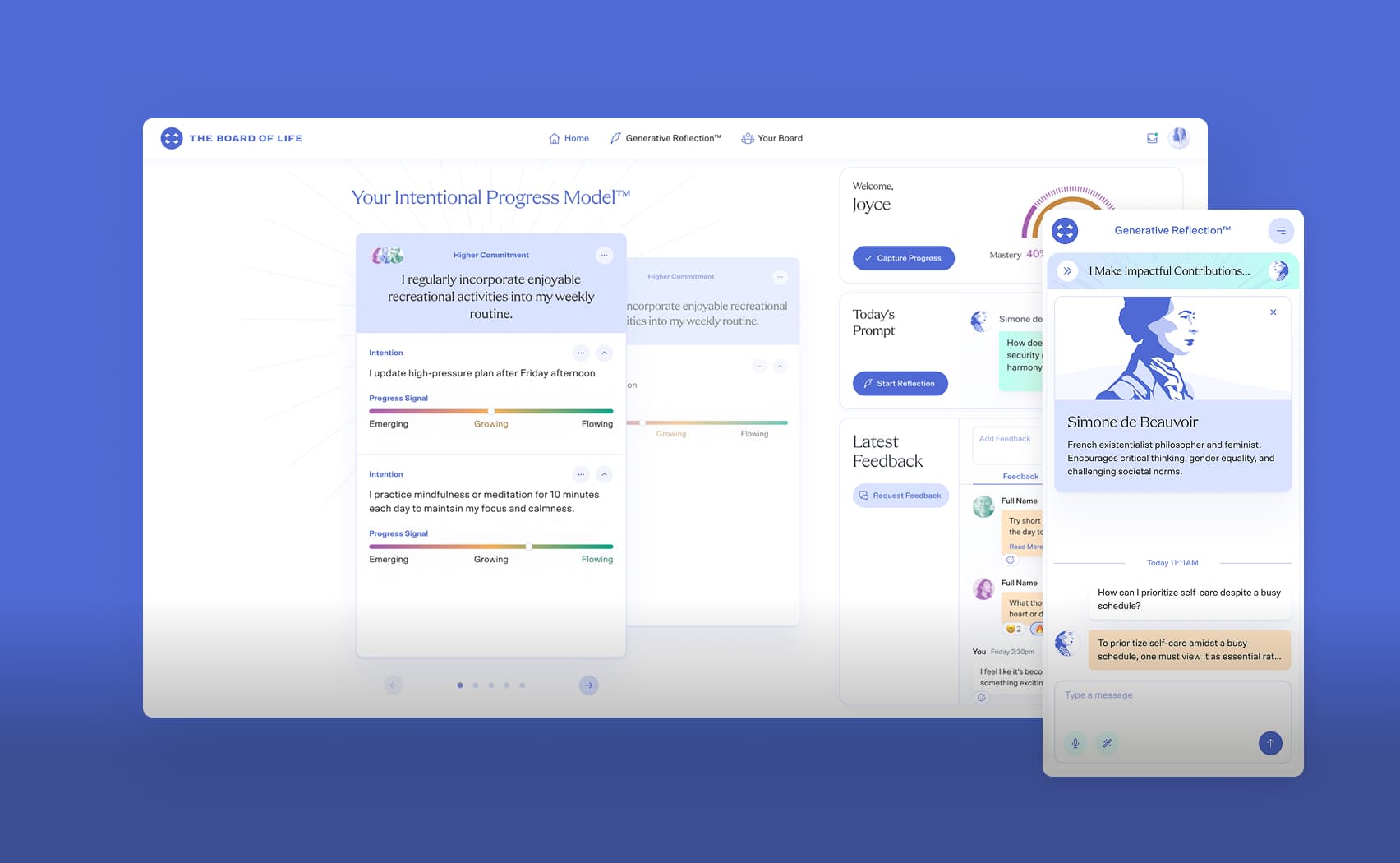6 Reasons to Choose Ruby on Rails For Your Web Development Project
In the ever-evolving world of web development, choosing the right framework is a pivotal decision that can significantly impact the success of your project. With a plethora of options available, it's essential to make an informed choice that aligns with your project's requirements, goals, and long-term scalability.
One popular option is Ruby on Rails, often simply referred to as ‘Rails’, a powerful and elegant web development framework that’s been winning the hearts of the developer community since its inception over 20 years ago. This is the framework that JetRockets uses to build award-winning web and mobile apps for our clients, and it’s also the framework the likes of Airbnb and Shopify are built on.
Whether you're a seasoned developer looking to explore new frameworks or a business owner seeking the right technology for your project, this blog will illuminate the reasons why Ruby on Rails stands out in the crowded web development landscape. So, let's dive in and discover why Ruby on Rails might just be the perfect fit for your web development project.
1. Convention Over Configuration
Simplicity and consistency are often overlooked virtues in web development. When working with Ruby on Rails, however, these principles are represented through its core philosophy: Convention Over Configuration" (CoC). This guiding principle has been a key factor in Rails' popularity and success since its inception. But what exactly does Convention Over Configuration mean, and why does it matter for your web development project?
At its essence, Convention Over Configuration signifies that Rails makes a series of assumptions and sensible defaults about how a web application should be structured. Instead of requiring developers to specify every detail explicitly, Rails follows a set of conventions that enable developers to be more productive by focusing on the unique aspects of their application.
This brings numerous benefits for your web development project, including:
- Reduced Development Time: Rails' conventions eliminate much of the repetitive and boilerplate code that developers typically need to write. By adhering to these conventions, developers can get started quickly, build features faster, and reduce the time spent on configuration.
- Predictable Structure: Rails applications follow a well-defined directory structure, with specific folders for models, views, controllers, and more. This uniformity makes it easier for developers to find and work on different parts of the application, even when collaborating with other team members.
- Team Collaboration: Convention Over Configuration fosters collaboration by ensuring that everyone on the development team is on the same page. With a common set of conventions, team members can easily understand and work on each other's code, reducing confusion and streamlining the development process.
- Maintainability: The consistent structure and naming conventions in Rails applications make them highly maintainable. Developers can easily navigate the codebase, make updates, and add new features without disrupting the existing system's flow.
- Sensible Defaults: Rails provides sensible default settings and configurations that are based on best practices. While these defaults can be customized as needed, they serve as a solid foundation for building secure and efficient web applications.
2. Strong Community and Support
Ruby on Rails boasts one of the most robust and vibrant developer communities in the industry. This community, with its passion for the framework and commitment to its growth, is one of the driving forces behind Rails' continued success.
Rails enthusiasts congregate on various online forums, including the official Ruby on Rails Forum, Stack Overflow, and Reddit communities. These forums provide a platform for developers to seek help, share knowledge, and discuss best practices. Its community is also behind a vast ecosystem of gems—reusable pieces of code that extend the framework's functionality. Many of these gems are created and maintained by the community, allowing developers to leverage existing solutions and accelerate development.
In addition, because Rails is an open-source framework, its development is driven by a dedicated group of contributors from around the world. This open approach ensures continuous improvement, bug fixes, and security updates, making Rails a reliable choice for long-term projects.
3. Security
Data breaches and cyber threats are ever-present concerns, meaning the security of your web applications should be a top priority. Ruby on Rails takes security seriously and provides a robust set of tools and practices to help developers build secure web applications.
Ruby on Rails includes a range of built-in security features that help protect your application from common web vulnerabilities. These features include Cross-Site Scripting (XSS) and Cross-Site Request Forgery (CSRF) protection, as well as secure password hashing. The Rails community is also proactive when it comes to identifying and addressing security vulnerabilities. The security team regularly releases patches and updates to address any potential security issues, ensuring that your applications stay protected.
Here’s some other ways Ruby on Rails prioritizes security:
- Secure Defaults: Rails encourages secure coding practices by providing secure defaults. For example, it encourages developers to use parameterized queries in database interactions to prevent SQL injection attacks. This approach reduces the risk of developers inadvertently introducing security vulnerabilities.
- Authentication and Authorization: Rails provides robust authentication and authorization mechanisms out of the box. Devise and CanCanCan are popular gems that simplify the implementation of user authentication and fine-grained access control, respectively.
- Content Security Policy (CSP): Rails supports the implementation of CSP headers, which help protect your application against cross-site scripting (XSS) attacks by defining which content sources are trusted.
- Automatic Parameter Whitelisting: Rails enforces strong parameter checking by default, which helps prevent mass assignment vulnerabilities. This ensures that only permitted parameters can be modified during requests, enhancing the security of your application.
4. Scalability
As your application attract more users and traffic, it must remain responsive and performant. Scalability ensures that your application can gracefully handle increased workloads, maintain a seamless user experience, and continue to function reliably even during periods of high demand.
Ruby on Rails offers several advantages and strategies for achieving scalability, making it a reliable choice for projects of all sizes. Firstly, it utilizes a modular approach to development, allowing you to break down your application into smaller, more manageable components. This modular architecture simplifies the process of scaling by enabling you to scale specific parts of your application independently.
Secondly, Rails provides built-in caching mechanisms that can significantly boost the performance and scalability of your application. You can implement fragment caching, page caching, and low-level caching to reduce database queries and server load.
Thirdly, Rails works seamlessly with a variety of databases, including PostgreSQL and MySQL, which are known for their scalability features. You can employ database replication, sharding, or clustering to distribute the database workload as your user base grows.
These are just three reasons among many why you should choose Rails for scalability. For example, the framework also offers tools like Sidekiq and Resque to manage background jobs, ensuring that resource-intensive processes don't block your main application threads. Moreover, it can integrate with key third-parties, like Content Delivery Networks (CDNs) and load balancers, to further reduce server loads and improve performance. All of these features are essential for accommodating increased data loads, and seizing opportunities for expansion without architectural constraints.
5. Cost-effectiveness
Of course, you’ll want to consider cost when choosing your web development framework. Ruby on Rails stands out as a cost-effective choice for a variety of reasons, making it an attractive option for startups, small businesses, and enterprises alike.
Here’s a few ways Rails can help you build robust web applications without breaking the bank:
- Rapid Development: Ruby on Rails is renowned for its ability to accelerate the development process. Its Convention Over Configuration approach and extensive library of gems simplify coding tasks, reducing development time and, consequently, development costs.
- Developer Efficiency: With Rails' intuitive syntax and well-defined conventions, developers can write clean, maintainable code more efficiently. This means that you'll require fewer development hours to achieve your project goals.
- Open Source: Ruby on Rails is an open-source framework, which means you don't need to invest in expensive licensing fees. You can leverage the framework's full capabilities without incurring additional software costs.
- Maintainability: Rails' emphasis on code maintainability ensures that your application remains cost-effective to manage over its lifetime. As your application evolves, you can make updates and add new features more efficiently.
- Longevity: Ruby on Rails has been in use for over a decade, and it continues to evolve and adapt to changing technology trends. Choosing a mature and proven framework can contribute to the long-term cost-effectiveness of your project.
6. Developer Satisfaction
Confidence is key when it comes to developing a well-performing application. This is not only true when it comes to your confidence in the web development team you choose to bring your idea to life, but web developers must also have faith in the tools they work with.
Ruby on Rails has garnered a reputation for fostering developer satisfaction over its lifespan. Ruby, the language underpinning Rails, is celebrated for its simplicity. Developers tend to enjoy writing Ruby code which, of course, is key to every happy work environment. Furthermore, Ruby on Rails provides a range of developer-friendly tools, such as scaffolding, generators, and built-in testing frameworks. These tools boost productivity and empower developers to be more efficient in their work.
There’s also a sense of camaraderie among Rails developers given the framework’s strong community. Collaboration and mentorship is common, creating a supportive atmosphere for developers. For businesses or entrepreneurs who hire a Rails development team, this positive environment ensures smoother development, quicker issue resolution, and a more robust and successful end product.
JetRockets — A Pioneer in Ruby on Rails Development
It’s for these reasons that JetRockets was one of the first companies to embrace Ruby on Rails and offer custom development services using the platform. As a Ruby on Rails development company, we help our clients turn their product visions into reality. From the award-winning Safari Portal that can create a travel itinerary in minutes, to EventSpace, a seamless virtual event management platform, JetRockets has a long history of building transformative mobile and web applications using Ruby on Rails.
To turn your technology idea into a fully-fledged application, contact our team today!



